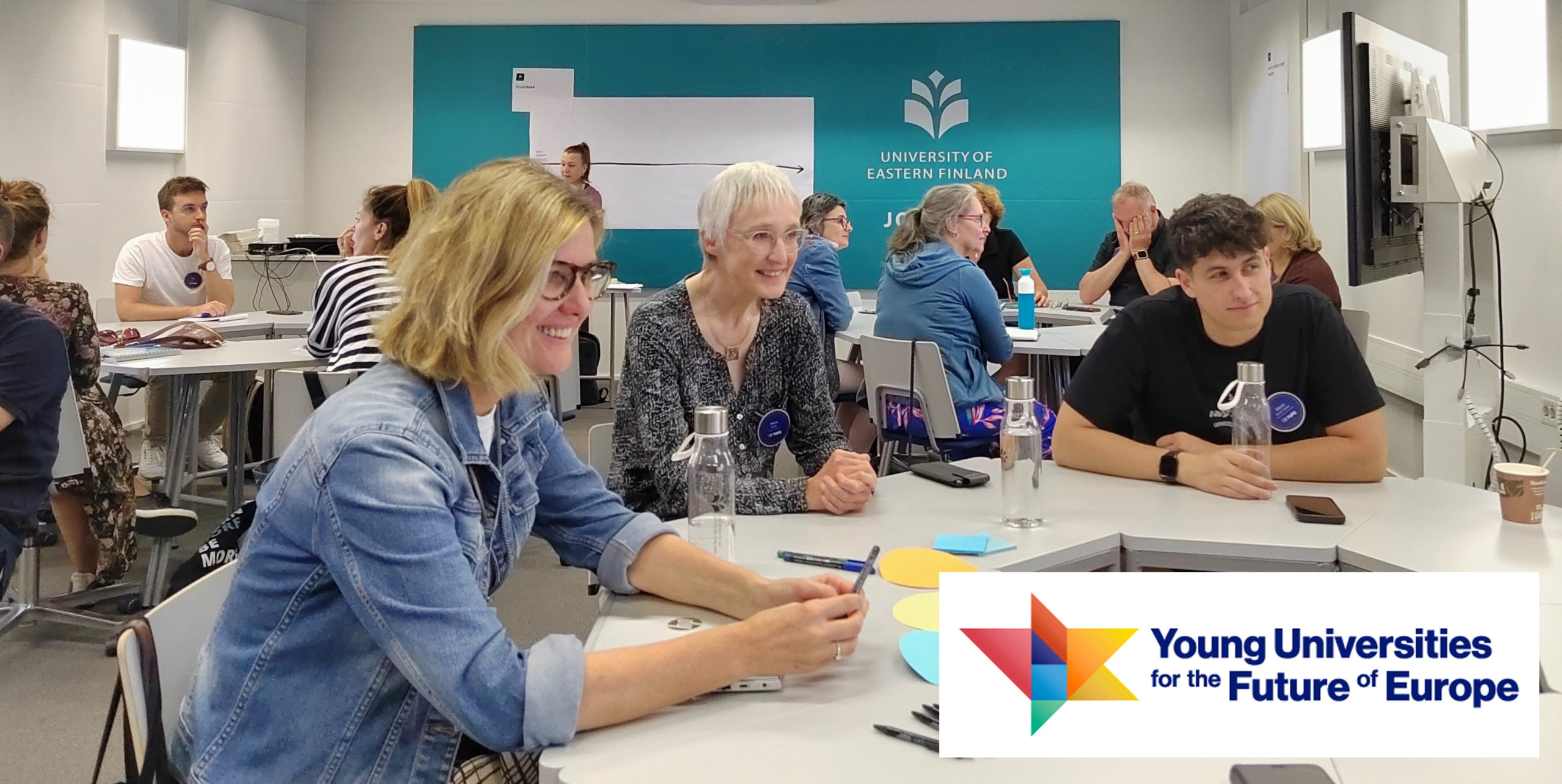The Young Universities for the Future of Europe (YUFE) Alliance strives to make Europe-wide learning opportunities a reality for students and learners from all backgrounds and in all stages of their personal and professional development. During the first phase of YUFE (2019 – 2022), the Alliance focused especially on degree students, pairing open academic learning and YUFE-wide extracurricular activities in the areas of language learning, professional / entrepreneurial training, and community volunteering.
With the start of a new phase (2022 – 2026), YUFE, based on the foundation of the first phase, is now building its Lifelong Learning (LLL) offer. The main objective is to design, develop and implement a ‘Skills of the Future’ programme for citizens and workers, providing them with career and development opportunities. The first 8 months of LLL work together have allowed us to do groundwork for achieving our ambitious goals. Starting something new, with a new team of people and on a European scale, bears many opportunities but also requires time and effort to gather all information needed to start the joint work.
So far it has become clear that we, YUFE Partners, have our own ways of defining what LLL is, what contents it can or should offer, to whom, how, when, by whom – and who should pay the costs. Our institutions already welcome a diverse group of adult learners, including degree students and professionals seeking LLL courses. The lines between different learner groups are blurred, and our partners have different structures to cater to their specific circumstances.
Not all partner universities have an Open University or a Centre for Continuous Learning. The LLL activities are offered also by individual departments, or in cooperation with different stakeholder institutions and NGOs, or exclusively online. Many partners have offers for children and youth, while some prefer University of the Third Age. Some focus 100% on training the paying, often professional, customers. Others are trying to offer free or discount priced contents for people with fewer resources.
The different types of trainings, public lectures, events, summer schools and science camps of our YUFE universities sum up to a plethora of activities. Which are worth sharing or doing together? In which languages? What are we still missing? If our 10 partner universities give us such variety, one can only imagine the number of practices placed under the umbrella of Lifelong Learning across Europe. The EPRS Database and The European Skills Agenda open us a vast field to cover.
To tackle the diverse starting points, the University of Eastern Finland recently hosted YUFE LLL Team’s first on-site meeting. As part of it, we did a facilitated Service Design process to draft the ‘Skills of the Future’ programme, and combined all our LLL plans into a roadmap. We have now narrowed our options down to a set of six skills (from empathy to green skills), and to four learner groups (from the Underserved learners to Quick-fixers). The draft still needs a lot of further thought, but we can already see our goals emerging and we are excited to continue the work started.
Next steps include resolving many practical issues. From adapting systems and communications to questions related to GDPR, registrations, guidance, evaluation, monitoring, funding possibilities, cooperation agreements, common understanding of micro-credentials… Without a doubt, we have plenty of discussions, work, and mutual learning ahead of us, also as universities – and that makes the journey shared so rewarding.
Katinka Käyhkö
Head of International Planning and Development
University of Eastern Finland, YUFE Alliance LLL Lead
.
References:
- EPRS (European Parliamentary Research Service): Lifelong Learning in the EU https://www.europarl.europa.eu/thinktank/infographics/lifelonglearning/
- European Commission: EU Skills Agenda https://ec.europa.eu/social/main.jsp?catId=1223&langId=en
.
Photo: YUFE Lifelong Learning Team includes a diverse group of people from young adults to mature professionals representing 10 universities.
Photocredit: © Katinka Käyhkö










